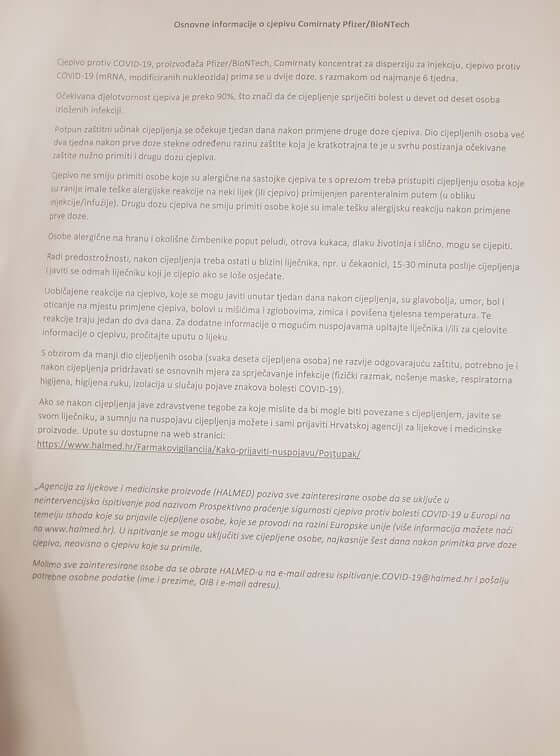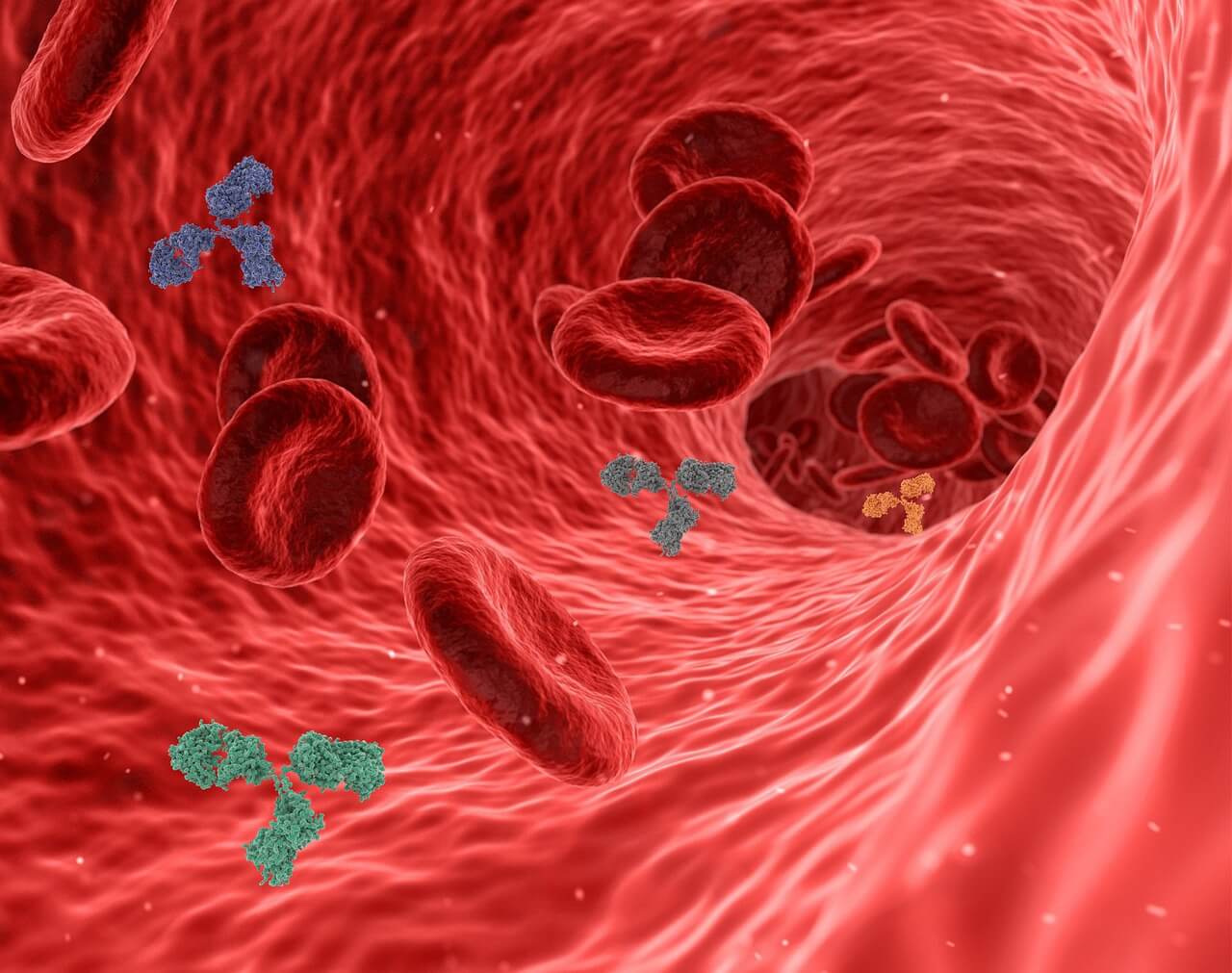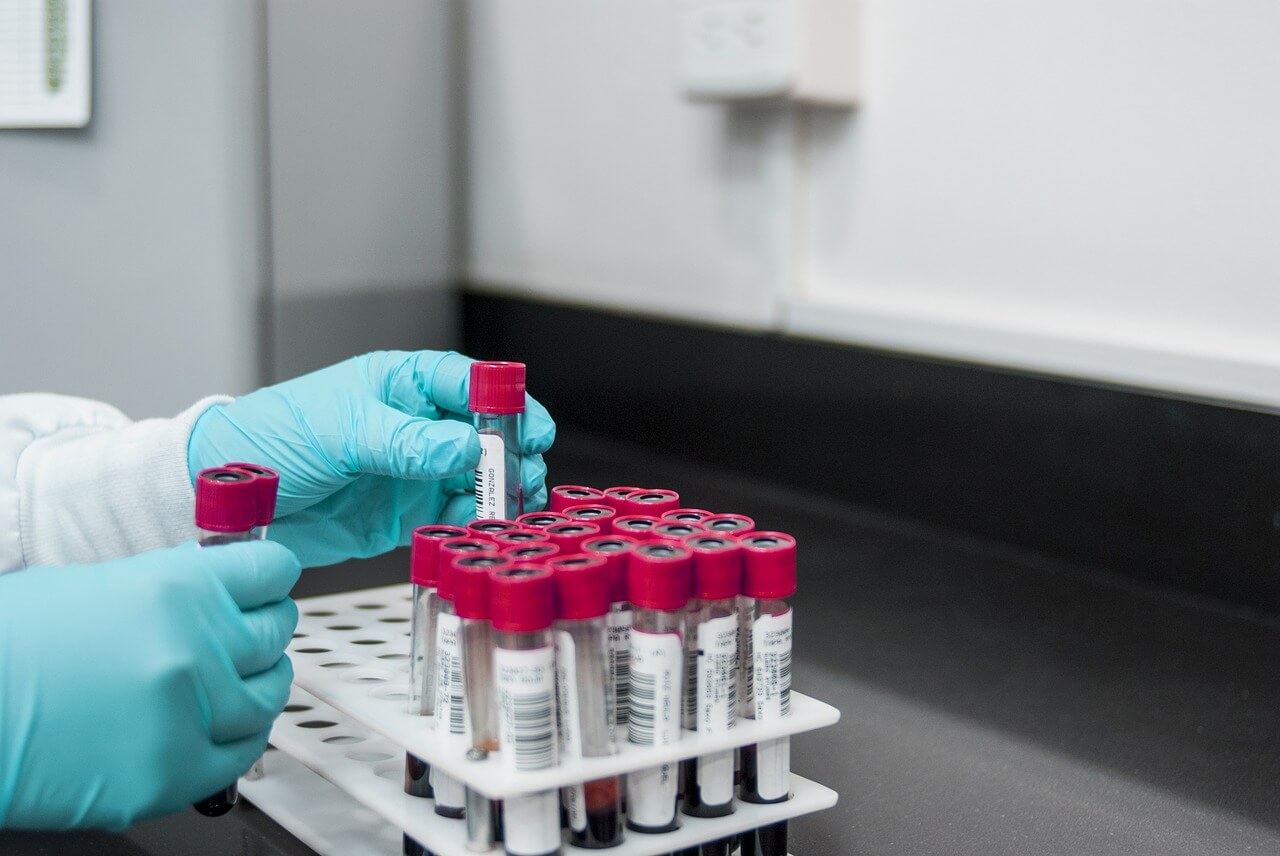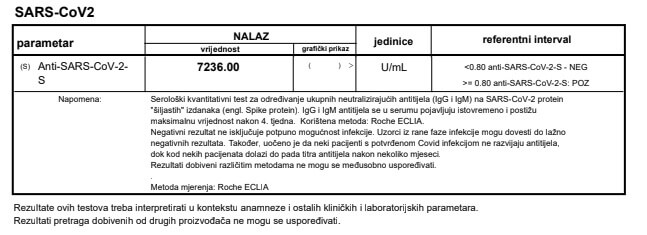Slovenia to Lend 40,950 doses of BioNTech/Pfizer Vaccine to Croatia
ZAGREB, 22 Nov 2021 - Following an increased demand for Pfizer/BioNtech's COVID-19 vaccine among the unvaccinated population in Croatia in recent weeks, the Slovenian government has decided to approve Croatia's request to lend it 40,950 doses of the vaccine.
The vaccine has not yet been delivered to Slovenia. so the operation will be carried out as a double donation. This means that Slovenia will first lend the vaccine to Croatia and then Croatia will return it to Slovenia by 31 December at the latest.
The contract for the double donation will be signed by the Health Ministry and the National Public Health Institute, which is also in charge of preparing the vaccine doses for transport, delivery, logistics and notifying the producer about the donation.
For all you need to know about coronavirus specific to Croatia, make sure to bookmark our dedicated COVID-19 section and select your preferred language.
Coronavirus Antibody Count: How to Check Zagreb Vaccine Results?
August 2, 2021 - With one in ten vaccinated people not developing immunity, how can we know our coronavirus antibody count? TCN reporter Ivor Kruljac found an option in Zagreb and learned whether or not his vaccination was a shot in the dark.
Given that a smaller part of vaccinated people (every 10th vaccinated person) fails to develop proper protection, it's necessary to adhere to the basic measures to prevent infection (maintaining social distancing, mask-wearing, maintaining respiratory and hand hygiene, and going into isolation in the event of the development of COVID-19 symptoms - says the paper containing some basic information about the COVID-19 vaccine I received when taking both doses.
The paper also contains info on how to report side effects and lists some common ones (headaches, developing the shakes, sore muscles, a fever that lasts for a day or two). It also assures that people allergic to food, pollen, insect bites, animal hair, and similar issues can take the vaccine, while those who had a severe reaction to the first dose should either not take the second one or approach it with caution.
With all vaccines having their alleged ups and downs, I opted for Pfizer. Why team Pfizer? Well, the more unserious reasons would be that almost everyone I know at TCN took Pfizer, and I wanted to be cool like them, and also, if it was so good that Croatian elites pushed through to take it earlier in the year, then it is probably good enough for me.

Post-vaccine information paper © Ivor Kruljac / Total Croatia News
Check the data, check yourself
But, on a serious note, as with every vaccine you choose, reading the information from the right sources (such as the WHO that started explaining the different technologies and the types of COVID-19 vaccine back in January as well as updating people about the latest info) is the best way to make the choice you feel most comfortable with.
While we witness many people refusing vaccines as they fall victim to fake news, conspiracy theories, and misinformation, some people refuse it for legitimate reasons. Those who suffer from blood clots have more than fair issues and questions about taking the vaccine.
It's worth noting that before you take the vaccine, a staff member will ask you a series of questions about your overall health (do you take any regular medications, have you already had COVID-19, do you have any chronic conditions, did you take antibiotics a month before, etc). Based on your answers, they will determine whether or not you should wait in the presence of medical staff for fifteen minutes, half an hour, or even longer following vaccination, and whether you should even take the vaccine in the first place.
Consulting with your trusty general practitioner and maybe even undergoing a physical examination ahead of vaccination is the best way to be as informed as possible to answer this series of pre-vaccine questions. Paired with general trustworthy vaccine info, your vaccine experience will likely be trouble-free.
Whether your reason for refusing the vaccine is because of a reasonable concern based on the available information and perhaps your current state of health, or because of some rather absurd misinformation, the recently developed situation in the US best presents the efficiency of the vaccine for your personal safety.
As Bloomberg reports, American president Joe Biden warned Americans that COVID-19 is now a pandemic that strikes only those who aren't vaccinated (49% of Americans have been fully vaccinated at the time of writing this article).
''We've still got a pandemic for those who haven’t gotten the vaccination. It’s that basic, it’s that simple, if you’re vaccinated, you’re not going to die,'' Biden said in late July in Cincinnati.
Choose the (un)lucky number
But, let's leave Biden for a second and get back to the issue at hand, one in ten vaccinated people, unfortunately, fails to develop protection against COVID-19. Despite my best efforts, I couldn't really find any solid medical reason as to why that is, but I'll leave that to the scientists and the doctors.
When it comes to the Pfizer vaccine, after my first dose, I felt sleepy, and the moment I came home, I took a really good nap. Was it due to the vaccine or the fact that I had an early morning appointment and I didn't get much sleep the night before? I'm not sure. As for the second dose, I was prepared for a headache and fever. It seems that these side-effects are practically unavoidable when it comes to Pfizer.
The second dose was received on July the 15th, a couple of days went by, and nothing happened. On one hand, that's great, but why am I not experiencing what the majority seem to experience following their second dose? Could it mean it isn't working? Am I number 10? If I was a medical professional I'd have been able to get the vaccine more quickly, and I would get an antibody test to get a better idea of where things stand.

Bloodstream © Pixabay
Public vaccine, private tests
The public healthcare system is one of the values Croats do like, despite their complaints. Pay your taxes and keep healthcare widely accessible. That said, sadly waiting lists can become quite long, and the overall debt left the public unsure whether the required medicines would perhaps be unavailable earlier in 2021. When it comes to non-emergency healthcare services, it may not be the worst idea to go see a private health professional (if you can afford it of course).
One such service is provided by Laboratory Breyer, founded in 1997 by a clinical chemistry specialist, Dr. Darija Breyer.
''Our motivation lies in never-ending research to better our service with the aim of increasing the care provided to our customers. Our best advertisement is the customer experience that serves as a starting point for all future appointments and is a foundation for long-lasting trust in our service. We justify the trust of our customers by expressing the highest concern for their health,'' says their official website.
The accessibility to the service is evident in Breyer now has two locations in Zagreb: Ilica 191 and Ede Murtića 9.
''Polyclinic Breyer is aimed at the customer: quality comes first with both customer and laboratory staff spaces combining maximum efficiency and modern design. Our complete service, starting from the reception to the test result is constantly re-evaluated and monitored. All personnel in both locations are included in all activities regarding quality compliance according to the written procedures and working instructions,'' they explain.
Open for communication; you can learn more and get in touch with the polyclinic here.

Blood analysis © pixabay
(Anti)body count
The informative piece of paper I received says it takes a week after the second dose to reach immunisation, and that our covid certificates for crossing borders will not allow their holders to avoid testing before two weeks from the second dose have passed. So, the plan is simple, wait two weeks and check your antibody levels.
Additionally, sometime during the late evening hours of the eleventh day after the vaccine, the side effects kicked in. I got a bit of a headache, a low-grade fever, and I experienced a bit of shaking. it was of course not all that pleasant but I welcomed it anyway. My body was reacting, and something was happening. So, should I get my antibody levels tested?
Fortunately, with a private clinic being an option, I had time to make a decision, as no appointment in advance was needed.
''How long has it been since you took the second dose?'' the Laboratory Breyer receptionist asked me when I arrived and I said I wanted coronavirus antibody count.
''Two weeks and one day,'' I replied.
''Hm, it might be a bit too early, the time period needed for immunisation can stretch for a whole month after the second dose, that's usually the best time to do the test,'' the expert kindly explained.
An expert, which I'm not, and you should always accept that you can't be good at everything and that someone always knows better than you about something. Still, I kindly asked if I could take the test anyway. Due to the journey, I'm about to take (which TCN readers will have a chance to learn a bit more about in the following weeks), I wanted to see if something had started happening in my body or not. Alright, the immunisation isn't complete, but if they find at least one little antibody in my bloodstream after two weeks, at least we'll know something had started, right?
My turn came quickly, and the nice lady asked me to take a seat and a vile of my blood was quickly taken. The needle was a bit more painful than a mosquito bite typically is, but at least there was no annoying itching afterward. They said the results would arrive in a couple of hours via email.
They carefully sealed the pierced point and suggested I take a seat in a waiting room. Careful examination of the vein a few minutes later confirmed that all was well. The test took a 220 kuna hit to my paycheck, which isn't that bad, maybe more like a slap.
The sample was taken at 11:09 AM, and results were issued at 15:03, so it was all pretty fast. Despite two weeks not being a long time, I already have 7,236 antibodies. So, the taxpayers didn't waste money on vaccinating me. Hip hip, hooray!

Vaccine efficiency confirmation, screenshot: Ivor Kruljac/TCN
Of course, vaccines don't mean you can't get sick, but the chances of death or developing a severe clinical picture are unlikely. It's nice to know that the one act that has been saving humanity from diseases for centuries works like a charm, and hopefully, more and more people will follow this positive scientific tradition and take the vaccine—both for themselves and for others.
Learn more about health in Croatia, including insurance, what to do in an emergency, and how to find dentists and doctors on our TC page.
For more about COVID-19 in Croatia, follow TCN's dedicated page and choose your preferred language.
Pfizer to Produce Materials For Its COVID-19 Vaccine in Croatia, Says PM
ZAGREB, 20 May 2021 - Prime Minister Andrej Plenković said on Thursday that Pfizer would produce materials for its COVID-19 vaccine in its pharmaceutical plant in Savski Marof outside Zagreb, which would put Croatia into the group of European countries that manufacture ingredients of certain vaccines.
Plenković informed his cabinet today that he had discussed this matter with Pfizer's chairman and chief executive officer Albert Bourla on Wednesday.
The Savski Marof plant will produce the DNA template for the COVID-19 vaccine. This is an investment of $10 million, and will create jobs for about 30 people.
Plenković recalled that the European Commission had announced that an agreement had been reached with Pfizer on the delivery of 900 million doses of the vaccine against COVID-19 plus an additional 900 million, which means 1.8 billion doses from December 2021 to 2023.
He underscored the fact that in Croatia one in three adults had already received at least one shot of the vaccine against coronavirus infection.
The target is to have at least 50%-55% of the adult population vaccinated by the end of June.
Plenković also informed the cabinet about the Defence Council meeting on the procurement of multipurpose fighter jets. The Council convened on Thursday morning.
He reiterated that providing the armed forces with such aircraft would be "the greatest and the most important procurement for the armed forces."
The procurement will make Croatia an important and credible ally within NATO and will enable the Croatian armed forces to participate in various international missions at a completely different level, he added.
For all you need to know about coronavirus specific to Croatia, including travel, border, and quarantine rules, as well as the locations of vaccination points and testing centers up and down the country, make sure to bookmark our dedicated COVID-19 section and choose your preferred language.
HZJZ: One in Three Adults Vaccinated
ZAGREB, 20 May 2021 - As of today, every third adult in Croatia has been vaccinated against COVID-19, the Croatian Public Health Institute (HZJZ) said on Thursday.
On Wednesday, 19 May, 43,890 doses of the vaccine were used, and the number of persons that have received at least one dose reached 1,109,161, which is 27% of the population or 33% of the adult population, while 341,008 persons have received both doses.
According to data from the eCijepih platform, as of 20 May, every third adult in Croatia has been vaccinated, which is a big step forward compared to early May, when on 1 May every fifth adult citizen of Croatia had been vaccinated, the HZJZ said.
First dose vaccine coverage is highest in Zagreb, 31% of the total population or 37.6% of the adult population, and second dose vaccine coverage is highest in Sisak-Moslavina County, 12% of the population or 14.4% of adults.
"These are encouraging data that give us reason for optimism when it comes to meeting the goal of vaccinating over a half of Croatia's adult population by the end of June. Vaccination is going according to plan, the epidemiological situation is better than in previous weeks and this is certainly good news, especially in the context of the upcoming tourist season," said HZJZ deputy director Ivana Pavić Šimetin.
For all you need to know about coronavirus specific to Croatia, including travel, border and quarantine rules, as well as the locations of vaccination points and testing centres up and down the country, make sure to bookmark our dedicated COVID-19 section and choose your preferred language.
Vaccine Information For Those Who Got First Dose at the Zagreb Fair
May 5, 2021 - People in Zagreb are getting their vaccines against the novel coronavirus, and the ‘‘Dr. Andrija Štampar’’ Institute has some vaccine information for them.
The vaccination process is continuing across all regions of Croatia to combat the novel coronavirus, even after a few weeks of uncertainty marked by problems with the vaccination portal cijepi.se. One of the vaccination points in the capital is at the Zagreb Fair, and those in charge have vaccine information about both doses for those who attend this vaccination point.
According to Our World in Data, as of 4 May, 944,398 doses of COVID-19 vaccine have been administered in Croatia, with 734,556 people receiving the first dose and 209,842 receiving both doses.
As reported by tportal.hr, the "Dr. Andrija Štampar" Institute wants to inform all citizens of the City of Zagreb who have been vaccinated with the first dose at the vaccination point at the Zagreb Fair that they have been referred for vaccination with the second dose. The term of vaccination with the second dose was defined in accordance with the recommendations of the Croatian Institute of Public Health.
Citizens can check the exact date for their second dose of vaccination at the Fair via the e-Citizens system, by calling the toll-free number 0800 8804 or via their selected family doctor (GP).
The "Dr. Andrija Štampar" Institute has also noted that the second dose of vaccination at the vaccination point at the Zagreb Fair is being organised exclusively for people who have already received their first dose of vaccine at that point. People without an referral term will not be vaccinated there due to limited organisational capacity.
In addition, "Stampar" has asked citizens to strictly adhere to the referral deadlines in order to avoid unnecessary crowds and for the purpose of more consistent adherence to epidemiological measures and recommendations.
For all you need to know about coronavirus specific to Croatia, including travel, border and quarantine rules, as well as the locations of vaccination points and testing centres across the country, make sure to bookmark our dedicated COVID-19 section.
Croatia Will Have Received 1.8 Million Pfizer COVID Doses by 1 July
ZAGREB, 16 April, 2021 - Croatia can expect the delivery of 1.8 million Pfizer doses against coronavirus and the inoculation of 55% of the population against this infectious disease until 1 July, the national COVID-19 crisis management team said on Friday.
Representatives of the team said at a news conference that Croatia has registered a 32% weekly rise in new cases, and that the share of positive tests was 29.2% on Friday.
In terms of the incidence rate, Croatia currently ranks 21st in the European Union and in the terms of the death rate, it ranks 17th, Croatia's chief epidemiologist Krunoslav Capak told the news conference.
"Pfizer has ramped up its delivery of vaccines for us. We Will have received a total of 1.805 million doses of this vaccine by the end of June," Capak said adding that he expected more than half of the population to get COVID shots before 1 July.
The head of the Zagreb-based Fran Mihaljević hospital for infectious diseases, Alemka Markotić called for additional caution before people get vaccinated.
"It would be a pity to develop serious symptoms of this disease now when we can be vaccinated soon," she said.
She said that the British variant of the novel virus was currently dominant in the European Union.
Markotić said that her hospital has been full with patients for days and that she was particularly concerned with the difficult condition of patients aged between 25 and 40.
Health Minister Vili Beroš reassured the general public that there would be enough vaccines for everyone who wishes to be immunised against this infectious disease.
Beroš dismissed accusations from some media outlets and Opposition lawmakers that the Cuspis company, which is allegedly owned by a family friend, had been favoured by the Health Ministry in the task to design the Cijepise (Get Vaccinated) platform.
Beroš said that all data concerning this issue were available on the ministry's website.
Beroš went on to say that the company had been hired by the ministry for some other tasks before he became an assistant minster and before his ministerial term.
For more about vaccination in Croatia, follow TCN's dedicated page.
Government Authorises Health Minister Vili Beroš to Purchase Pfizer/BioNTech Vaccine
ZAGREB, 9 March, 2021 - The Croatian government on Monday adopted a conclusion authorising Health Minister Vili Beroš to sign an order for the procurement of the Pfizer Inc./BioNTech COVID-19 vaccine.
The conclusion was adopted in line with an agreement signed between the European Commission and Pfizer Inc./BioNTech Manufacturing GmbH on 17 February 2021.
The funds for the procurement of the vaccine will be secured by the Croatian Health Insurance Fund.
The EC has so far signed six agreements on the upfront purchase of vaccines against COVID-19 on behalf of EU member states. The February 17 agreement between the EC and Pfizer refers to the purchase of an additional 200 million doses.
For more about COVID-19 in Croatia, follow TCN's dedicated page.
When Will Pfizer Coronavirus Vaccine Become Available From Your GP?
December the 29th, 2020 - The new Pfizer coronavirus vaccine has finally arrived in Croatia, with Branka Anicic being the first person in the Republic of Croatia to receive it. She gave a touching statement to the media in which she urged everyone to receive the vaccine in order to protect themselves, their friends and families, and of course - for the sake of returning to normality.
While that might be all well and good, the next logical question on the lips of just about everyone is just when they'll be able to get access to the Pfizer coronavirus vaccine, and when will GPs be able to administer the vaccine to the general public?
As Poslovni Dnevnik writes, there are numerous factors to be taken into consideration in this regard, and Krunoslav Capak, the director of the Croatian Institute for Public Health, explained things in more detail:
"In the first phase, we're planning to vaccinate healthcare workers who are on the front line of the fight against the spread of the virus, as well as the residents of nursing homes. Only then will the vaccine be distributed to family physicians (GPs). We sent some very detailed instructions for the Pfizer coronavirus vaccine out to the field. We also expect the Moderna coronavirus vaccine to arrive by the second half of next month, and that can remain in the fridge for up to 30 days. So, we wanted to spare the doctors any stress and not send them the Pfizer coronavirus vaccine, which can only last for five days as opposed to 30. We'll agree on everything that needs to be done with the doctors, presentations have already been sent out to them, and there's a recording of the webinar where our experts give instructions available to them.''
The Pfizer coronavirus vaccine and potential side effects
As for potential side effects, a survey was conducted over the phone. No side effects have been reported so far, Halmed also had nothing reported to it.
''There were two cases of allergic reactions at the ''Dr. Fran Mihaljevic'' Infectious Diseases Clinic in Zagreb, noted Capak. Alemka Markotic, the director of the aforementioned clinic, added that those people had two mild rashes.
New doses of the Pfizer coronavirus vaccine are due to arrive in Croatia later on this week.
For the latest travel info, bookmark our main travel info article, which is updated daily.
Read the Croatian Travel Update in your language - now available in 24 languages


